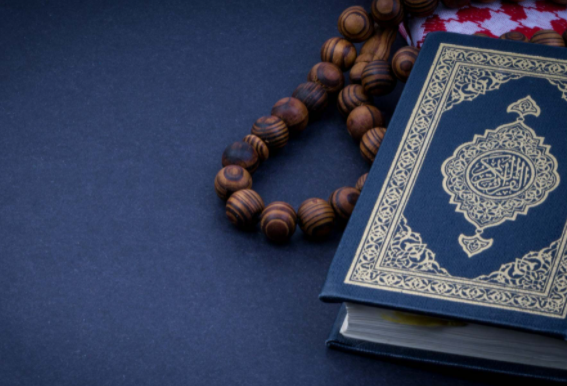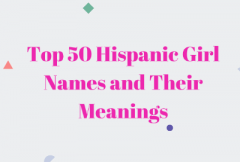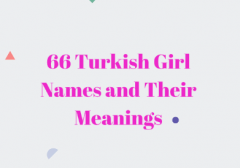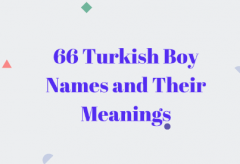
The Quran, as the holy book of Islam, holds a deep connection to faith, culture, and tradition. It serves as a source of inspiration for many Muslims, including when it comes to choosing meaningful names for their children. Female names found in the Quran often carry beautiful meanings, symbolizing virtues, blessings, and divine connections. Below is a list of some female names mentioned in the Quran, along with their meanings, offering insight into their spiritual and cultural significance.
1. Maryam (مريم)
The name Maryam is one of the most prominent female names in the Quran, as it belongs to Mary, the mother of Prophet Jesus (Isa). Maryam is the only woman mentioned by name in the Quran, and she is praised for her piety, humility, and strength. The name Maryam means “beloved” or “wished-for child,” making it a popular choice among Muslim families. It symbolizes purity, devotion, and faith.
2. Hawa (حواء)
Hawa, the Arabic name for Eve, is the first woman in Islamic tradition and is known as the mother of all humankind. While her story is shared with that of Adam, Hawa holds a place of significance as a symbol of life and motherhood. The name Hawa means “source of life” or “living being.” It represents the nurturing aspect of femininity and the beginning of human existence.
3. Aisha (عائشة)
Aisha, the wife of Prophet Muhammad, is another highly revered figure in Islamic history. Her name means “alive” or “living.” Aisha is remembered for her intelligence, strength, and contribution to Islamic teachings. Women who bear this name are often associated with vitality, energy, and leadership. The name reflects a vibrant and lively personality, making it an enduring choice among Muslim families.
4. Asiya (آسية)
Asiya bint Muzahim is mentioned in the Quran as the wife of Pharaoh and a devout believer who protected Moses (Musa) when he was an infant. Despite her husband’s tyranny, Asiya remained steadfast in her faith and is one of the four women regarded as having attained perfection in Islam. The name Asiya means “one who heals” or “comforts.” It symbolizes strength, resilience, and unwavering faith, making it a name of inspiration.
5. Zaynab (زينب)
Zaynab, derived from the Arabic word “zayn” (beauty) and “ab” (father), is a name that appears multiple times in Islamic history. It was borne by the Prophet Muhammad’s granddaughter and other esteemed women of his family. The name Zaynab means “a fragrant flower” or “beauty of the father.” It signifies grace, beauty, and elegance, representing both inner and outer beauty.
6. Sara (سارة)
Sara is the wife of Prophet Abraham (Ibrahim) and the mother of Prophet Isaac (Ishaq). The name Sara means “princess” or “noblewoman.” In the Quran, Sara is a symbol of faith and trust in God’s plan, as she bore a child at an advanced age by divine intervention. This name reflects grace, nobility, and the rewards of patience and belief.
7. Khadijah (خديجة)
Khadijah was the first wife of Prophet Muhammad and the first person to accept Islam. She was known for her business acumen, loyalty, and deep faith. The name Khadijah means “premature child” or “early baby,” but it is more often associated with wisdom and leadership. Khadijah is a symbol of support and strength, and her name is often given to girls in honor of her pioneering role in the early Muslim community.
8. Fatimah (فاطمة)
Fatimah, the daughter of Prophet Muhammad, is revered for her piety, kindness, and devotion to her family. The name Fatimah means “one who abstains” or “weans.” In Islamic tradition, Fatimah is seen as a role model for Muslim women, embodying modesty, charity, and spiritual purity. Naming a daughter Fatimah is a way of instilling values of virtue, family, and selflessness.
9. Safiya (صفية)
Safiya was one of the wives of Prophet Muhammad, and her name holds the meaning “pure” or “chosen.” The name Safiya carries connotations of purity, sincerity, and trustworthiness. It is a name that reflects spiritual cleanliness and a heart devoted to goodness. Safiya’s life story and her role as a wife of the Prophet offer insight into the values of loyalty and wisdom.
10. Mariam (مريم)
Mariam is another variation of Maryam, and it is a widely used name across the Muslim world. The significance of the name remains tied to the virtues of Mary, mother of Jesus. This name represents devotion, faith, and purity, making it a name of great spiritual importance in Islamic culture.
Conclusion
Choosing a female name from the Quran not only honors the rich Islamic heritage but also offers a deep connection to faith and spirituality. Each name carries its own unique meaning, reflecting virtues like purity, strength, faith, and devotion. Whether you are looking for a name that symbolizes beauty, resilience, or noble character, the Quran offers a variety of meaningful options that are cherished within the Muslim community.
When selecting a name for a child, understanding its origin and significance in the Quran can help foster a sense of identity and connection to Islamic values, providing a source of inspiration for the child’s future.






